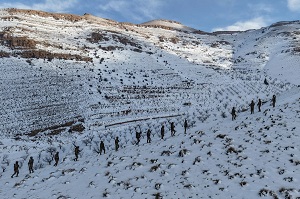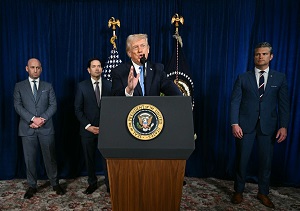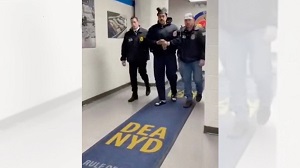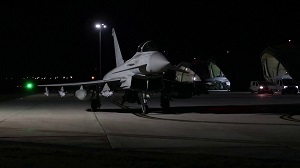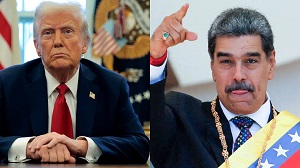Lebanon Protesters Reject Concessions, Block Key Roads

Nahar.Net
Anti-corruption protesters cut off major roads in Lebanon for a ninth day Friday, pledging to keep paralysing the country despite an offer by the president to meet their representatives.
The demonstrators, who have thronged towns and cities across Lebanon prompting the closure of banks and schools, have been demanding the removal of the entire political class, accusing it of systematic corruption.
Numbers have declined since Sunday, when hundreds of thousands took over Beirut and other cities in the largest demonstrations in years, but could grow again over the weekend.
Lebanon's largely sectarian political parties have been wrong-footed by the cross-communal nature of the demonstrations, which have drawn Christians and Muslims, Shiite, Sunni and Druze.
Waving Lebanese national flags rather than the partisan colours normally paraded at demonstrations, protesters have been demanding the resignation of all of Lebanon's political leaders.
"All of them means all," has been a popular slogan.
In attempts to calm the anger, Prime Minister Saad Hariri has pushed through a package of economic reforms, while President Michel Aoun offered Thursday to meet with representatives of the demonstrators to discuss their demands.
But those measures have been given short shrift by demonstrators, many of whom want the government to resign to pave the way for new elections.
"We want to stay on the street to realise our demands and improve the country," one protester, who asked to be identified only by his first name Essam, told AFP.
"We want the regime to fall... The people are hungry and there is no other solution in front of us," said Essam, a 30-year-old health administrator.
Hizbulah chief Sayyed Hassan Nasrallah was due to give a speech later on Friday.
'Risk of chaos'
On Friday morning, protesters again cut some of Beirut's main highways, including the road to the airport and the coast road towards second city Tripoli and the north.
On the motorway north of Beirut, demonstrators had erected tents and stalls in the centre of the carriageway.
But there was no sign any move by the army to try to reopen the road.
In central Beirut, where street parties have gone on into the early hours, groups of volunteers again gathered to collect the trash.
"We are on the street to help clean up and clean up the country," volunteer Ahmed Assi said.
"We will take part in the afternoon to find out what the next stage will be," said the 30-year-old, who works at a clothing company.
In a rare moment of violence in the otherwise peaceful demonstrations, scuffles broke out in central Beirut on Thursday, injuring one protester, when Hezbollah members began chanting slogans in support of their leader.
The partisan display grated with the non-sectarian atmosphere cultivated by most of the protesters.
Lebanon's Al-Akhbar newspaper, which is close to Hezbollah, headlined its front page "Risk of chaos", saying the movement had pledged to work to reopen blocked roads.
Hezbollah maintains a large, well-disciplined military wing.
Fares al-Halabi, a 27-year-old activist and researcher at a non-governmental organisation, told AFP that "the Lebanese parties are trying to penetrate the demonstrations and put pressure on them or split them."
Lebanon endured a devastating civil war that ended in 1990 and many of its current political leaders are former commanders of wartime militias, most of them recruited on sectarian lines.
Persistent deadlock between the rival faction leaders has stymied efforts to tackle the deteriorating economy, while the eight-year civil war in neighbouring Syria has compounded the crisis.
More than a quarter of Lebanon's population lives in poverty, according to the World Bank.
The post-war political system was supposed to balance the competing interests of Lebanon's myriad sects but its effect has been to entrench power and influence along sectarian lines.
